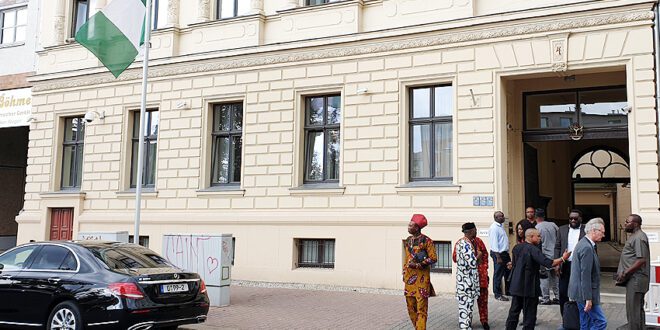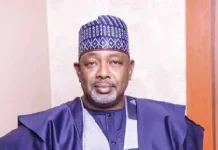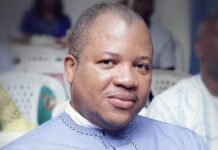Every year an increasing number of Nigerians flee poverty and unrest at home. Now, rich Nigerians are planning their escape too. And they’re taking their money with them.
Dapo has spent too long at home in Lagos, Nigeria. Back in October, protests against the SARS police unit kept him from going to his office. “First, we were told to stay at home because of the coronavirus. Then this,” he says.
A wealthy Nigerian, Dapo, who is in his late 30s, does not want to make himself identifiable by giving his surname and age, lest it draw unwanted attention.
He has had a “backup plan” for getting out of Nigeria for some time, he says. “I have Maltese citizenship. I can leave for there any time.” With one small obstacle – a 14-day quarantine upon arrival – Dapo could be permanently in Malta any time he pleases. He is not planning to go imminently, but describes it as his “plan b’’.
Dapo is one of a rapidly growing number of Nigerians who have bought so-called “golden visas” or foreign citizenships-by-investment this year. In his case it was Malta, the Mediterranean island where citizenship can be acquired for a minimum investment of 800,000 euros ($947,180) through the Malta Citizenship by Investment Programme.

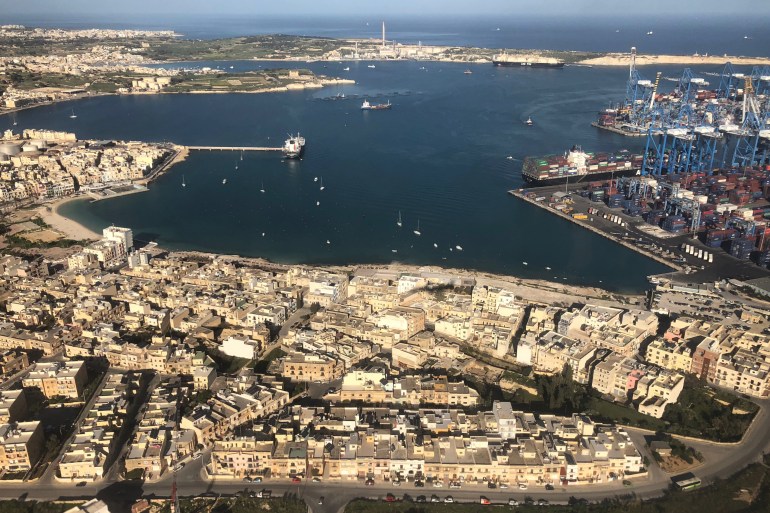 An aerial view over Malta Freeport in Valletta, in March 2018 [File:Getty Images]
An aerial view over Malta Freeport in Valletta, in March 2018 [File:Getty Images]Not that he has any special love for Malta. A record 92 countries around the world now allow wealthy individuals to become residents or citizens in return for a fee, sometimes as low as $100,000 but often several million dollars. It is billed as a “win-win”: The country gets much-needed foreign investment and, in return, the new citizens have new passports that open up more of the world to travel or live in.
Golden visas are the lesser-reported side of the Nigerian migration story. Every year thousands of Nigerians make their way to Europe via perilous crossings over the Sahara and Mediterranean. Now their wealthier counterparts are also making their way to Europe but via a different route.
A record year for golden visas
Whether rich or poor, the reasons for leaving one’s home country are often the same. Fear of political uncertainty at home and hope for better opportunities elsewhere. But 2020 has been exceptional.
Like Dapo, Folajimi Kuti, 50, was watching the #EndSARS protests from his home in Lagos in October. “I have children, they’re teenagers, and they’re asking me questions like, ‘How did we get here?’” he says, referring to the violence that accompanied demonstrations against the controversial Special Anti-Robbery Squad (SARS).
Kuti says he has believed for some time that social unrest would boil over in Nigeria, because of issues of poverty and police brutality. “It had been clear for the past two or three years that something was going to happen. It’s happened now in 2020 but, frankly, we’ve been expecting this outburst for a while so it wasn’t a matter of ‘if’. It was a matter of ‘when’.”
 An aerial view shows the central business district in Nigeria’s commercial capital, Lagos in 2009 [File: Reuters]
An aerial view shows the central business district in Nigeria’s commercial capital, Lagos in 2009 [File: Reuters]Citizenship or residency abroad has become appealing, he adds. As a financial adviser to the wealthy, Kuti knows the process of applying for one having walked clients through it before. Most of his work involves advising Nigeria’s growing number of millionaires about investments and wealth planning. But now they are asking about foreign citizenships and Kuti himself is tempted by the idea. “Just knowing that if you need to go you certainly could and move without any restriction.”
The rush for golden visas among rich Nigerians started before October’s SARS protests. At London-based Henley & Partners, one of the world’s largest citizenship advisory firms, applications by Nigerians increased by 185 percent during the eight months to September 2020, making them the second-largest nationality to apply for such schemes after Indians.
More than 1,000 Nigerians have enquired about the citizenship of another country through Henley & Partners this year alone, which Paddy Blewer, head of marketing, says “is unheard of. We’ve never had this many people contacting us”.
Many, like Kuti, saw political problems ahead and wanted an escape plan. Others were focused on coronavirus: What if the pandemic overwhelms Nigeria?
“There is a lack of primary healthcare capacity that would be able to manage with either a second wave or whatever happens in, say, 2025,” says Blewer. “Let’s say there is COVID-21 still going on in 2025 that is of an order or magnitude worse. It’s, ‘Do I want to be based here and only based here, or do I want an alternative base of operations where I believe I will be safer and I will be able to run my global businesses’.
“And, I think, that’s what COVID has driven.”
 The Victoria Island waterfront is seen from the affluent Ikoyi neighbourhood in Lagos, in June 2014 [File: Reuters]
The Victoria Island waterfront is seen from the affluent Ikoyi neighbourhood in Lagos, in June 2014 [File: Reuters]It was in July, when the number of COVID-19 cases in Nigeria escalated, that wealthy Nigerians started looking more seriously at citizenship abroad, experts say. “Those with medical conditions that could not fly out – a lot of them are buying passports just because if there is any problem they can fly out,” says Olusegun Paul Andrew, 56, a Nigerian entrepreneur and investor who spends much of the year in the Netherlands.
“Flying out” of Nigeria is hard and not just because of the coronavirus pandemic. Just 26 countries allow Nigerian passport holders visa-free entry, many of them part of West Africa’s ECOWAS arrangement. Both the United Kingdom and Europe’s Schengen zone require Nigerians to obtain visas ahead of travelling.
For the wealthy, this is too much hassle. “They don’t want to be queueing for visas for any EU country or whatever,” says Andrew. Instead, why not purchase the citizenship of a country with visa-free access to Europe?
To Europe, via the Caribbean
Bimpe, a wealthy Nigerian who also does not wish to give her full name, has three passports. One Nigerian, which she says she never uses, and two from Caribbean nations: St Kitts and Nevis; and Grenada.
The St Kitts and Nevis passport, which cost her $400,000 via a real estate investment programme, was useful when she travelled between London and New York on business as it allows for visa-free travel to the UK and Europe. But now that she has retired in Abuja, Bimpe, whose husband has passed away, wants her three adult sons to have the same opportunities to travel and live abroad.
“My kids were interested in visa-free travel. They are young graduates, wanting to explore the world. So that was the reason for my investment,” she explains.
 A general view of Grenada taken in March, 2019 [File: Getty Images]
A general view of Grenada taken in March, 2019 [File: Getty Images]
Her investment to gain a Grenada passport for herself and her sons took the form of a $300,000 stake in the Six Senses La Sagesse hotel on the Caribbean island, which she bought in 2015 through a property development group called Range Developments. Like most countries offering their citizenship for sale, Grenada allows real estate investments to qualify for a passport.
Bimpe’s family has lived overseas before – spending nine years in the UK between 2006 and 2015. Of her three sons, she says: “One, for sure now, is never going to leave Nigeria. He loves it here. The second one lives in England. He’s been in England long enough to get British residency. My youngest – for him, living abroad is a very, very attractive option. He’s not very happy [in Nigeria]. He went to England very young – at age 12 – and he’s had a problem adjusting since. He’s been back in Nigeria five years and he’s still not settled.”
Now aged 26, Bimpe’s youngest son is looking at settling in the UK or in the US where, thanks to his Grenada citizenship, he qualifies for an E-2 visa, something not available to his fellow Nigerians since President Donald Trump’s ban on immigrant visa applications in February. Bimpe believes his career opportunities in acting – he studied Drama in the UK – are better abroad, and therefore considers the Grenada citizenship to be a worthwhile investment.
Neither Bimpe nor her sons have ever been to Grenada even though their investment allows them to stay on the Caribbean island, once known as The Spice Island. “I intend to go. I would like to go,” she says. “Just when I did [the investment], it was soon after my husband died and I wasn’t in the mood for travel and then I got my passport but there was no good reason for travel due to the pandemic.”
The Six Senses La Sagesse is being constructed by Range Developments, whose founder and managing director, Mohammed Asaria, says it is not unusual for investors never to visit. In fact, since there is no obligation for citizenship investors to visit Grenada, interest in the scheme has ballooned among Nigerians.
 An aerial view of the Six Senses Grenada [Photo courtesy of Range Developments]
An aerial view of the Six Senses Grenada [Photo courtesy of Range Developments]
“We have between high single figures and low double-digit sales of hotel units on a monthly basis to Nigerians. The average investment is just under $300,000,” says Asaria. “It’s a big market for us. And it’s going to get bigger. There are 300 million people [in Nigeria].” Of these, more than 40,000 are millionaires and, therefore, potential customers for golden visas, according to the Knight Frank Wealth Report.
It is a similar story across the Caribbean. Arton Capital, a citizenship advisory group, says demand from Nigerian families for Antigua and Barbuda citizenship is up 15 percent this year compared with the last.
St Lucia has also seen a record number of Nigerians applying in 2020. “It’s more than it’s ever been over the past four years,” says Nestor Alfred, CEO of the St Lucia Citizenship-by-Investment Unit.
The citizenship market is not exclusive to the Caribbean, but these are the cheapest and they maintain that all-important visa-free access to Europe that their clients are hankering after.
Tax incentives
“I’m rich but I’m not a Donald Trump. I wasn’t looking for a tax escape,” says Bimpe.
Investing in a foreign citizenship is not illegal for Nigerians, but the issue of wealthy citizens moving their assets overseas is a thorny one in Nigeria, where about $15bn is lost to tax evasion every year, according to the country’s Federal Inland Revenue Service. Much of that money finds its way to the Caribbean, as was highlighted in the leaked documents that formed part of the Panama Papers in 2016.
The tax benefits of an overseas citizenship are undoubtedly attractive. Citizens can become tax residents of countries like Dominica, where there is no wealth or inheritance tax, or Grenada which offers “corporate tax incentives”. In Europe, Malta has long been courting hedge funds with its light-touch regulations.
 Tourists take photographs down a typical street in Valletta, Malta in 2018 [File:Getty Images]
Tourists take photographs down a typical street in Valletta, Malta in 2018 [File:Getty Images]Being a citizen of a country with a more stable currency is also appealing to the wealthy. “Second citizenship helps with capital mobility. Pull up a graph of the Naira. If you look at the Naira for the last 10 years it’s been a horrible journey,” says Asaria. Better, therefore, in the minds of the wealthy, to own assets in euros or even East Caribbean dollars which are pegged to the US dollar.
“Businesses are struggling, inflation on the rise, insecurity, and a host of other issues. These issues have prompted an increase in citizenship or residency-by-investment from wealthy Nigerians in a bid to secure a better future for their families in developed countries,” says Evans Ahanaonu, a Lagos-based representative for High Net Worth Immigration, a citizenship advisory firm. Grenada and Turkey are popular for clients wanting quick access to Europe, he adds, while some go straight for the UK Innovator Visa which means setting up a business in the UK.
Given the number of applications processed by the citizenship advisory firms interviewed just for this article, a conservative estimate would put the amount invested by Nigerians into citizenship schemes at more than $1bn this year alone.
Where rich and poor migrants meet
The loss of wealth from Nigeria has severe implications for levels of employment in the country. With wealthy businesspeople investing their capital outside Nigeria rather than in it, there is less funding for local businesses or government projects which might otherwise generate employment. This, in turn is causing more poorer Nigerians to want to move overseas as well, in search of better work opportunities, a trend backed up by the findings of a 2018 survey by Afrobarometer, the data analysis group.
Just before the pandemic struck, Kingsley Aneoklloude, 35, was able to make his way to Europe, but via a very different route.
He was working as a mechanic in his village in Edo State, one of the country’s poorer provinces which have been untouched by oil wealth, where he earned 1,500 naira ($3.95) a week.
The salary was poor but the final straw was police brutality. Aneoklloude was briefly employed as a local election monitor during the 2015 presidential elections. He says he was pressured by representatives of a political party to manipulate ballot papers, but refused, after which he became afraid for his safety. “I left because they were chasing me. Honestly, they come and chase me,” he says.
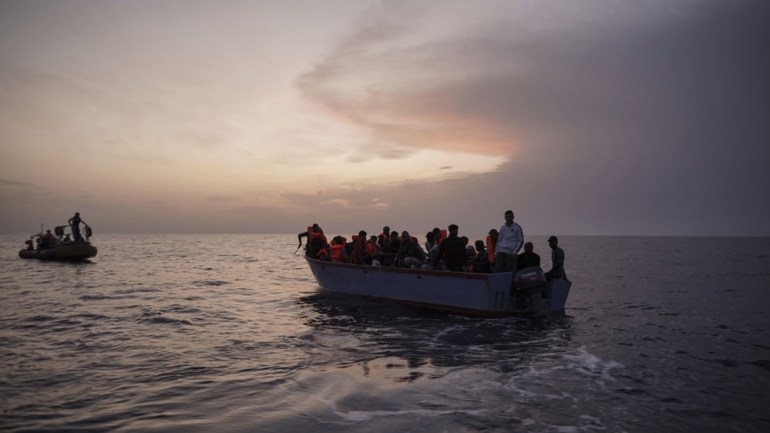 In a photo from 2019, migrants fleeing from Libya on an overcrowded wooden boat wait to be rescued in the Mediterranean Sea [File: AP]
In a photo from 2019, migrants fleeing from Libya on an overcrowded wooden boat wait to be rescued in the Mediterranean Sea [File: AP]First, he went to Kano State in the north of Nigeria. Then, in December 2019, Aneoklloude made the dangerous journey to Europe via Niger, then Libya, “where there was a heavy war in Tripoli”, before crossing the Mediterranean.
While adrift on the Mediterranean Sea, his small boat was rescued by Open Arms, an NGO which helps refugees and migrants crossing the Mediterranean. Their ship docked in Lampedusa, one of the Italian Pelagie Islands, where Aneoklloude’s asylum application for Germany was processed.
Now in Potsdam, Germany, he is waiting to hear the outcome of his application for new citizenship and a job. “I have a nine-month contract for work, but they need the immigration officer to sign the contract before I start,” he explains.
At 35, Aneoklloude is just a few years younger than Dapo. Both have witnessed police brutality from different angles, and both saw the Mediterranean as their way out.
But now, with Nigeria’s economy officially in another recession, more will likely follow. It is a dangerous spiral: The more wealth taken out of Nigeria, the fewer jobs available to its poorest.
Join Television Nigerian Whatsapp Now
Join Television Nigerian Facebook Now
Join Television Nigerian Twitter Now
Join Television Nigerian YouTUbe Now

